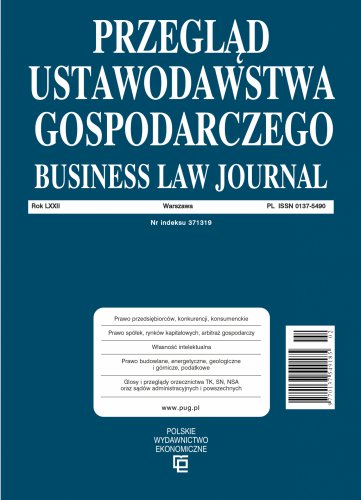The contemporary challenges facing the public sector, both at national and EU level, cover several aspects. In the long term, these challenges relate primarily to issues of technological and environmental transformation. Both at the EU and national level, increased efforts are being made to develop strategies that will enable the development of the economy to adapt as fully as possible to the challenges of the present day. The new European Commission's strategy implies two pillars of the economic transformation: environmental and digital transformation. Digital transformation includes activities focused on the use of modern technologies based on the 4th Industrial Revolution, Internet of Things, 5G network, Blockchain and the concept of Smart City. Public procurement will play an important role in the implementation of modern solutions. They have the potential to implement digital transformation due to the number of entities obliged to apply adequate legal regulations and the amount of funds annually spent under public procurement procedures. The new Polish Public Procurement Law contains solutions that make it possible to meet current technological challenges. In order to achieve this goal, it is necessary to base the public procurement model on four pillars, i.e.: (1) basing the actions of public procurers on the principle of efficiency, (2) increasing communication between procurers and contractors, (3) increasing competition on the domestic public procurement market, and (4) increasing the use of technological solutions within the procedure of granting and implementing public procurement. The indicated solutions, if used comprehensively in practice, will enable the development of the public sector, both in terms of services provided and infrastructure.
Keywords: digital transformation; public procurement; 4th Industrial Revolution; Internet of Things; Smart City

